MercoPress. South Atlantic News Agency
Tag: Nicolas Maduro
-
Monday, December 7th 2015 - 07:43 UTC
In peaceful voting Venezuelan opposition wins by a landslide; Maduro admits defeat
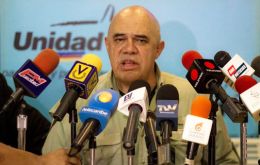
Venezuela's opposition won control of the National Assembly by a landslide, delivering a major setback to the ruling party and altering the balance of power after almost 17 years of populist rule.
-
Wednesday, December 2nd 2015 - 11:08 UTC
Macri to meet Rousseff Friday: trade, Mercosur and Venezuela in the agenda

Next Friday Argentine president elect Mauricio Macri will be travelling to Brasilia to meet with president Dilma Rousseff, which will be the incoming leader's first overseas trip.
-
Tuesday, December 1st 2015 - 08:01 UTC
Venezuelan Defense minister denies any coup, 'self-coup' or civilian-military junta
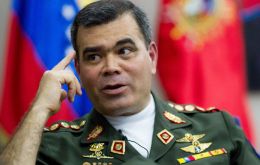
The Venezuelan government sought Monday to downplay security fears around the country's upcoming legislative elections, rejecting the possibility of violence or a coup. With polls showing President Nicolas Maduro's populist movement on track for a landmark defeat by the opposition in Sunday's vote, speculation and rumors have swirled about possible violence or moves by the ruling party to cling to power.
-
Monday, November 30th 2015 - 07:32 UTC
OAS Secretary General open letter regarding Venezuela's pre-electoral climate
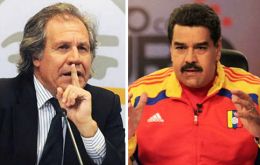
The following open letter from the Organization of American States Secretary General Luis Almagro was addressed to president Nicolás Maduro regarding the pre-electoral climate in Venezuela, which is holding legislative elections next Sunday in very questionable and controversial conditions for opposition candidates.
-
Saturday, November 28th 2015 - 08:10 UTC
Unasur calls on Maduro to launch thorough investigation into the killing of opposition politician
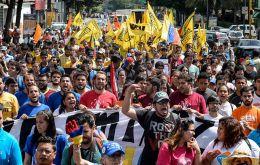
An electoral mission of the Union of South American Nations (Unasur), the body in charge of monitoring Venezuela’s upcoming elections on December 6, called on the authorities in Caracas to immediately launch a thorough investigation into the death of an opposition politician at a rally, barely two weeks before crucial parliamentary elections.
-
Friday, November 27th 2015 - 08:21 UTC
Maduro blames killing of opposition leader to score-settling among gangs

Venezuelan President Nicolas Maduro said Thursday the fatal shooting of an opposition leader appeared to be a gangland score-settling dismissing claim it was politically motivated ahead of elections. An attacker shot Luis Manuel Diaz dead on Wednesday evening in the central Guarico region at a campaign rally for the December 6 legislative elections, party officials said, ratcheting up fears that violence could erupt in the lead-up to the polls.
-
Friday, November 27th 2015 - 06:28 UTC
OAS calls for immediate end to violence in Venezuela
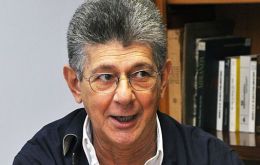
The Organization of American States (OAS), secretary general Luis Almagro condemned the killing in Venezuela of an opposition leader during a political rally ahead of the 6 December legislative election, and called for an immediate end to violence in the country.
-
Wednesday, November 25th 2015 - 07:35 UTC
Mujica wishes Argentina and Macri 'the best', but has fears about 'institutional stability'
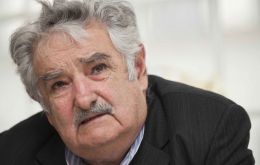
Two days after Mauricio Macri's victory in Argentina, Uruguay's former president Jose Mujica wished Argentina “the best” with its new government, but also expressed fear about the 'institutional stability' of the country.
-
Tuesday, November 24th 2015 - 11:29 UTC
Venezuelan military involved in cocaine transport, claims New York Attorney Office

The latest developments in the drug trafficking case with relatives of Venezuela’s first lady Cilia Flores indicate that the Venezuelan military is involved in transporting cocaine to Haiti for trans-shipment into the US.
-
Tuesday, November 17th 2015 - 08:37 UTC
Venezuela claims Maduro's nephews held in the US on cocaine smuggling charges were 'kidnapped'

Two men said to be relatives of Venezuelan President Nicolas Maduro who are being held in the United States on cocaine smuggling charges were “kidnapped,” a senior member of the ruling Socialist Party said on Monday.
